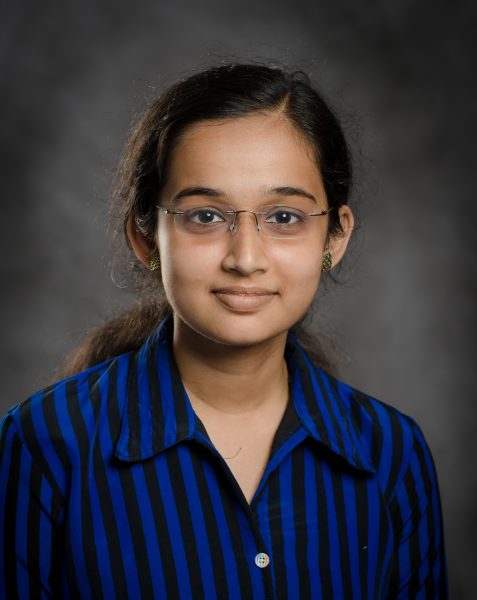I began my Ph.D. journey in Chemistry in the Fall 2019 under the guidance of Dr. Tatyana G. Karabencheva-Christova. Prior to joining MTU, I earned a master’s degree in Applied Chemistry from Mahatma Gandhi University and a bachelor’s degree in Chemistry from Calicut University, India. It was during my master’s program that I developed a profound interest in computational chemistry, which ultimately led me to pursue advanced studies in this fascinating field.
My research primarily focuses on exploring enzyme characteristics and mechanisms through the application of multilevel computational methods, including Molecular Dynamics (MD), Quantum Mechanics (QM), and combined Quantum mechanics/Molecular mechanics (QM/MM). During my Ph.D., I had the opportunity to contribute to NIH-funded projects on the non-heme Fe(II) and 2-oxoglutarate dependent oxygenase, Fat mass and Obesity Associated Protein (FTO), and the Zn(II) dependent metalloprotease, Matrix metalloproteinase-1 (MMP-1), both of which have crucial implications in various types of cancers. In the former project, I investigated the enzymatic mechanism of FTO with its major substrate, N6-methyladenine in single-stranded RNA, and explored the influence of clinically relevant mutations Arg316Gln and Ser319Phe on different stages of the catalytic cycle. In the latter, I unraveled the water-mediated catalytic mechanism of MMP-1, conformational dynamics and long-range correlated motions assisting in catalysis and the role of the catalytic and structural Zn(II) ions in the overall stability of enzyme.
I am immensely grateful to the Graduate Dean Awards Advisory Panel and the Dean for recognizing my efforts and awarding me the Doctoral Finishing Fellowship. I extend my heartfelt gratitude to my advisor, Dr. Tatyana G. Karabencheva-Christova, whose guidance and support have been invaluable throughout my Ph.D. journey. I also extend my thanks to all the faculty and staff in the Chemistry department for their encouragement and assistance.
